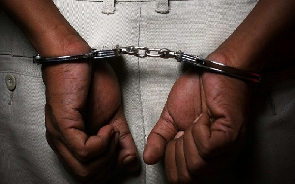National security, just as any other social science concept is very fluid and without any precise definition. Combing through a swath of definitions, one is gravitated towards the definition provided by Harold Brown as that captures most of the important elements of national security. According to him, “National security then is the ability to preserve the nation's physical integrity and territory; to maintain its economic relations with the rest of the world on reasonable terms; to preserve its nature, institution, and governance from disruption from outside; and to control its borders." (Harold Brown, U.S. Secretary of Defence, 1977–1981).
In practice, however, national security appears to have no conceptual boundary as long as threats, both external and internal are concerned. This allows for so much discretion on the part of governments in defining what constitute national security. In essence, national security concerns become what governments say they are. But the fundamental and undisputed function of national security is the protection citizens.
In relation to a country, regime on the other hand is described as the set of principles, norms, rules and institutions by which a country is governed. Regimes do not necessarily have universal appeals that serve the interest of every citizen or group within the country. Regimes are largely neutral; their shape and direction are dictated by those with the authority to govern. This partly explains the desire on the part of some members within the state to bring about a political change in order to also control the regime and to manipulate it to serve their interest. For example, the laws and institutions of states, in principle, tend to be neutral and have no partisan colourations but whoever governs at any point in time exercises significant influence over these institutions and the character they assume in practice. They (those with the authority to govern) also determine to a large extent, whose interests these institutions and laws serve.
Given this background, the protection of the regime expressed in regime security is always as important as the national security to the ruling elites. However, unlike national security which is priced on the protection of all citizens, regime security is discriminatory, designed to serve the interest of the ruling elites and their support base within the state. In pursuing regime security, citizens (sometimes constituted into political parties, CSOs or advocacy groups and perceived as opposing the ruling government) become the primary and immediate targets or victims. Because of the absence of any conceptual boundary as noted above, Paul D. Williams argued that “security is, therefore, a powerful political tool in claiming attention for priority items in the competition for government attention” (Williams, 2010: p. 2).
Under this guise therefor, fundamental human rights and other forms of political freedoms such as the right of assembly are sometimes sacrificed in the name of national security. Where the exercise of such rights and freedoms are threatens the reign of the ruling elites, they are designated as security threats and treated as such. Events in Libya in 2011 and recent events in Syria are illustrative of these facts; governments going hard on their own citizens in the protection of the power.
The 2020 elections in Ghana presents important illustrations of how security agencies – primarily the police and the armed forces are used to suppress dissent under the guise of safeguarding national security. What happened during the elections was only the smoking gun to how national security is made subordinate to regime security and the protection of power in many African countries including Ghana. The 2020 elections saw a massive involvement of the military in the elections to elect the president and members of parliament without any justifiable ground except, visibly, to silence dissent and to quell resistance mounted by opposition groups.
The involvement of the military reached its crescendo when they invaded the chamber of parliament ostensibly to instil discipline when members of parliament-elect had convened to elect a speaker and to be sworn-in in accordance with law. All these activities, sometimes in flagrant violations of individual human rights and which has led to the death of eight (8) citizens, were carried out under the guise of safeguarding the security of the nation from its own citizens who were unarmed.
The military couldn’t have acted in this manner without clear instructions. In Ghana, the military do not act on their own unless instructed. And the 1992 constitution of the Republic of Ghana shows who has control over the Ghana Armed Forces and the source of their authority. Article 57(1) for instance, specifically states that the President of the Republic of Ghana is the Commander-In-Chief of the Ghana Armed Forces. Again, article 212 (2) of the constitution reads; “The president may acting in accordance with the advice of the Armed Forces Council appoint officers of the Armed Forces who shall be given such command as the Armed Forces Council shall determine”. To further illustrate the command-and-control structure, the Armed Forces Council is chaired by the vice president of the republic and composed of the ministers of defence, foreign affairs and interior, the Chief of Defence Staff, The Service Chiefs and two others all appointed by the President in consultation with the council of state and a warrant officer or its equivalent in the Ghana Armed Forces (Article 211 (a-d)).
These provisions in the constitution prove quite clearly, that, the military could not have been involved in the manner they did without the express permission of the government. And part of the justification for which the military would have been involved in the manner witnessed during the elections would be to safeguard the security of nation. The minimalist justification, though still linked to safeguarding national security is the keeping of public order. This excuse was the most frequently cited especially by the police to expressly ban peaceful protests by opposition parties and other groups within the capital, Accra and in several other places within the country as witnessed in the period post-elections. Whereas the 2020 elections come as the proximate illustration of the prioritization of regime security over national security, variants of the abuse of incumbency and the use of the security agencies during elections to perpetuate governments’ hold on power is a common albeit disturbing feature that has characterised all elections in the country since 1992. Virtually every government under the fourth republic is guilty of the politicization of the country’s security agencies and the use of same to stamp out any opposition to their rule, ostensibly to ensure the security of the nation.
In the nutshell, the events of the 2020 elections in Ghana is evident that the practice of national security is abused to serve parochial political interest of the ruling elites. And part of reason is the convergence of the constitutional provisions which leaves the security agencies at the mercy of the government and the desire on the part of appointees within the state security apparatus to please the appointing authority. To cure this political menace, the first step, in my opinion, is to amend sections of the 1992 constitution which gives so much control and power to the executive over the Ghana Armed Forces. This will allow for the much-needed exercise of independence and military professionalism in serving the national interest and national security above regime security.
Reference
Williams, P.D. (2010). Security Studies: An Introduction. Routledge, UK
The Heritage.org (Oct 7, 2014). “What is National Security?” https://www.heritage.org/military-strength-topical-essays/2015-essays/what-nationalb
Brown, H. (1983). Thinking about national security: Defence and Foreign Policy in a dangerous world.
Author is a 3rd Year PhD candidate
at the University of Ghana,
the Department of Political Science
Opinions of Tuesday, 26 January 2021
Columnist: Alhassan M. Kamil















